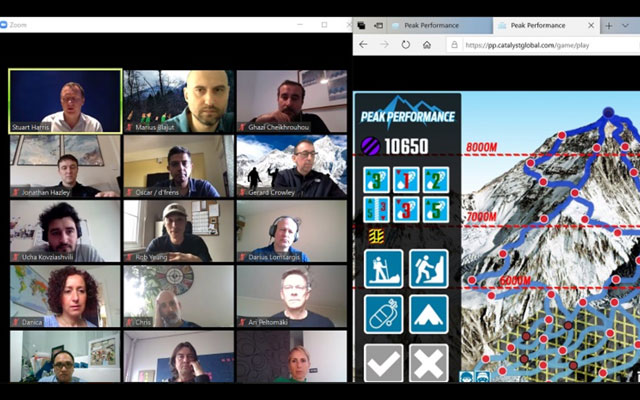Corporate organisations are increasingly turning to virtual solutions for teambuildings, and more products are coming online to meet demand.
This is as companies are forced to design new offerings to fill the need for connection and boost morale in workplaces, even while employees practice social distancing and isolation.

Australian teambuilding company Be Challenged said they are seeing a “strong increase in demand” for their virtual teambuilding programs, with enquiries coming from both local and Asian sources.
“We’re still getting fewer enquiries than we were (before Covid-19) but we’re now getting anywhere up to 25 or 30 enquiries per week as managers and organisations know they need to do something. (But) what exactly they want to do, they’re not sure,” Kingsley Seale, director of operations at Be Challenged, told TTGmice.
“That’s the biggest difference. In the past, they were quite clear on what they wanted to do. But this week we will be running five remote or virtual programmes which seems to be about the norm at the moment as some teams exit crisis mode,” he continued.
Be Challenged currently offers about 12 virtual products for teambuilding, with more possibly coming online as new programs are developed and offered through their license agreement with the global Catalyst Group.
Compared to traditional teambuilding sessions that can run for up to three hours, these online programmes come in shorter at 30 to 90 minutes. There’s also a priority of inclusion so that employees who don’t have access to high Internet speeds or gaming computers are not left out.
Kingsley shared that the available programmes catered to different team needs. These range from games that teach staff the benefit of learning from others in isolation, to connections that are organised just for fun with people divided into teams and challenges involving everyday household items like teaspoons or cups to “take people’s minds off the pandemic”.
Their most popular programme however, is the DISC self-profiling tool which has been adapted for virtual application.
“People are being forced to work remotely which is quite a big change for most of us,” said Kingsley. “You’re seeing some interesting behaviours coming across from teams, and as a result some teams are maybe becoming a little dysfunctional or not performing at the higher level that they need.”
“DISC allows people to explore why certain people react the way they do, or why certain people communicate in a certain way. It helps to bring that cohesion back and work towards being a more functional team, and as a result, you get better output,” he continued.
Kingsley believes while virtual offerings will not replace face-to-face meetings when lockdown restrictions are lifted, they are here to stay and will likely increase in future.





















